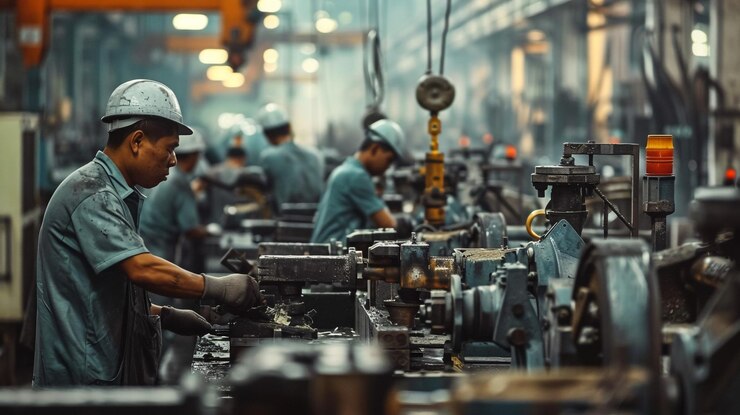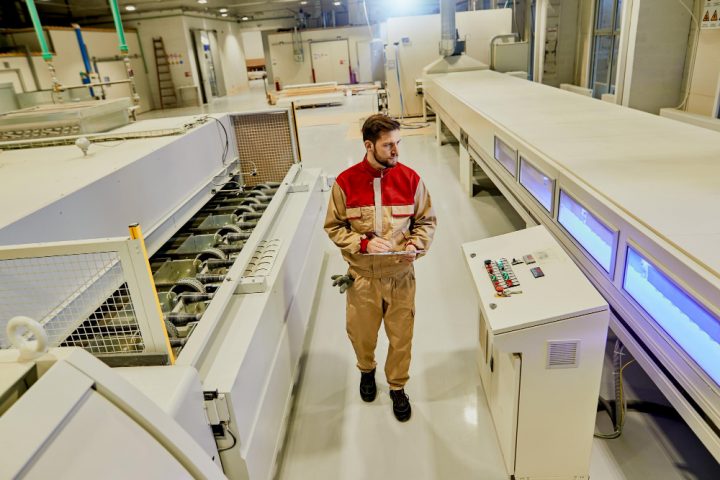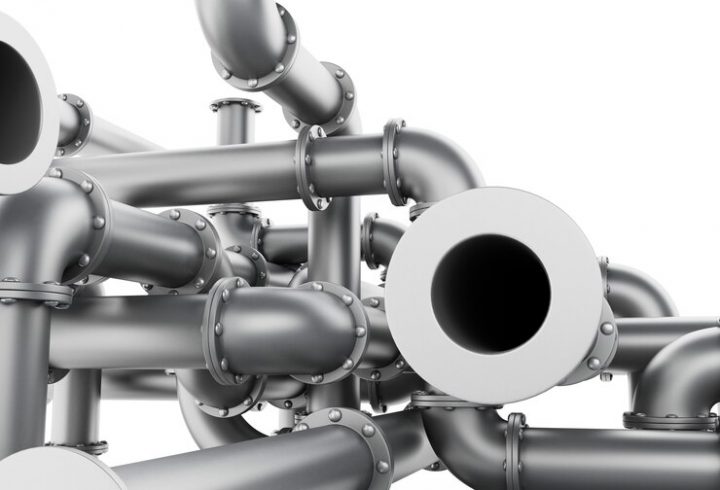The process equipment manufacturing sector in India has emerged as a pivotal component of the nation’s industrial landscape. With a robust infrastructure and a growing demand for sophisticated equipment, this sector presents a plethora of opportunities, yet it is not without its challenges. In this blog, we will explore the dynamics of the process equipment manufacturing industry in India, examine the opportunities it offers, analyze the challenges faced by manufacturers, and conclude with how to find reliable process equipment manufacturers through platforms like Enggpro.
Table of Contents
- Understanding the Process Equipment Manufacturing Sector
- Opportunities in the Process Equipment Manufacturing Sector
- Challenges Faced by the Process Equipment Manufacturing Sector
- Strategies for Success in the Process Equipment Manufacturing Sector
- Conclusion
Understanding the Process Equipment Manufacturing Sector
Definition and Scope
Process equipment manufacturing refers to the production of machinery and tools used in various industries such as chemicals, pharmaceuticals, food and beverage, oil and gas, and water treatment. This includes a wide range of equipment, from reactors, heat exchangers, and mixers to filtration systems, pumps, and valves. The sector is integral to the supply chain of these industries, ensuring the efficient and safe production of goods.
Market Size and Growth
According to recent market research, the Indian process equipment manufacturing sector is projected to grow significantly in the coming years. The increasing investments in infrastructure, coupled with a rise in demand for advanced machinery, are expected to drive this growth. The government’s initiatives, such as the “Make in India” campaign, further bolster the sector by promoting local manufacturing and reducing dependence on imports.
Opportunities in the Process Equipment Manufacturing Sector
1. Growing Industrial Demand
India’s rapidly expanding industrial base offers a substantial market for process equipment manufacturers. With sectors like chemicals, pharmaceuticals, and food processing booming, the demand for efficient and innovative equipment is higher than ever. As industries evolve, the need for specialized equipment that meets specific regulatory standards also increases, providing manufacturers with the opportunity to develop and supply customized solutions.
2. Government Initiatives and Policies
The Indian government has rolled out several initiatives aimed at boosting manufacturing, such as the National Manufacturing Policy, which aims to increase the manufacturing sector’s contribution to GDP. Additionally, policies promoting Foreign Direct Investment (FDI) have attracted international companies to set up manufacturing bases in India, leading to knowledge transfer and technological advancements.
3. Technological Advancements
The adoption of Industry 4.0 technologies, such as automation, IoT, and AI, is transforming the process equipment manufacturing sector. Manufacturers who invest in these technologies can enhance productivity, reduce operational costs, and improve product quality. This technological shift also opens up opportunities for manufacturers to innovate and offer smarter solutions to clients.
4. Export Potential
With a diverse range of process equipment being produced, Indian manufacturers have the potential to tap into international markets. The growing global demand for high-quality manufacturing equipment presents opportunities for Indian companies to establish themselves as key players on the global stage. Initiatives aimed at promoting exports can further enhance this opportunity.
5. Sustainable Manufacturing Practices
As industries worldwide move towards sustainable practices, there is a growing demand for eco-friendly and energy-efficient process equipment. Manufacturers who prioritize sustainability in their product design and production processes can gain a competitive edge in the market. Implementing green technologies not only appeals to environmentally conscious clients but also helps companies comply with increasingly stringent regulations.
Challenges Faced by the Process Equipment Manufacturing Sector
1. High Initial Investment
The process equipment manufacturing sector often requires substantial initial capital investment for machinery, technology, and skilled labor. Small and medium-sized enterprises (SMEs) may find it challenging to secure funding, which can hinder their ability to compete with larger firms. Access to financing and support from government initiatives is crucial for the growth of these enterprises.
2. Skilled Labor Shortage
Despite the availability of a large workforce, there is a noticeable gap in the availability of skilled labor in the manufacturing sector. The lack of vocational training and specialized education programs has resulted in a shortage of qualified personnel capable of operating advanced machinery and implementing innovative manufacturing techniques. This skills gap poses a significant challenge for manufacturers aiming to adopt new technologies and processes.
3. Regulatory Compliance
Manufacturers in the process equipment sector must navigate a complex web of regulations and standards related to safety, environmental impact, and product quality. Compliance with these regulations can be resource-intensive and requires continuous monitoring and adjustments to production processes. Failure to adhere to these regulations can result in penalties and damage to a company’s reputation.
4. Supply Chain Disruptions
The process equipment manufacturing sector is highly reliant on global supply chains for raw materials and components. Disruptions caused by geopolitical tensions, natural disasters, or pandemics can severely impact production schedules and increase costs. Manufacturers must develop resilient supply chain strategies to mitigate these risks and ensure a steady flow of materials.
5. Intense Competition
With numerous players in the market, competition in the process equipment manufacturing sector is fierce. Companies must continuously innovate and improve their offerings to stay relevant. Price wars, aggressive marketing strategies, and the entry of new players can squeeze profit margins, making it essential for manufacturers to differentiate themselves through quality, service, and technological advancements.
Strategies for Success in the Process Equipment Manufacturing Sector
1. Invest in Research and Development
Continuous investment in R&D is crucial for innovation. Companies that prioritize R&D can develop advanced products that meet the evolving needs of the industry. Collaborating with research institutions and universities can also foster innovation and provide access to cutting-edge technologies.
2. Focus on Quality Control
Implementing stringent quality control measures throughout the manufacturing process ensures that products meet the required standards. A commitment to quality not only enhances customer satisfaction but also builds trust and credibility in the market.
3. Enhance Workforce Skills
To address the skills gap, manufacturers should invest in training programs for their workforce. Collaborating with educational institutions to create vocational training initiatives can help bridge the skills gap and ensure a steady supply of skilled labor.
4. Embrace Digital Transformation
Adopting digital technologies can streamline operations, improve efficiency, and enhance product offerings. Manufacturers should invest in automation, data analytics, and IoT solutions to optimize their processes and gain a competitive edge.
5. Foster Strategic Partnerships
Collaborating with other manufacturers, suppliers, and technology providers can enhance capabilities and open up new markets. Strategic partnerships can lead to shared resources, knowledge transfer, and joint ventures that benefit all parties involved.
Conclusion
The process equipment manufacturing sector in India presents a unique blend of opportunities and challenges. With a growing industrial base, supportive government policies, and advancements in technology, manufacturers have the potential to thrive in this dynamic environment. However, addressing challenges such as skilled labor shortages, regulatory compliance, and intense competition is crucial for sustained growth.
To navigate this complex landscape and find reliable process equipment manufacturers in India, platforms like Enggpro offer valuable resources. Enggpro connects buyers and suppliers in the engineering industry, providing a comprehensive directory of process equipment manufacturers. By leveraging such platforms, businesses can streamline their procurement processes and ensure they partner with reputable manufacturers, fostering growth and innovation in the process equipment sector.
In conclusion, the future of process equipment manufacturing in India looks promising, driven by innovation, sustainability, and a commitment to quality. By seizing the opportunities and addressing the challenges, manufacturers can play a significant role in shaping the industry and contributing to the country’s economic growth.



